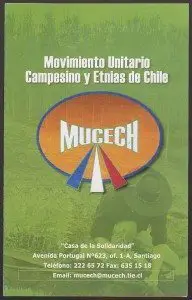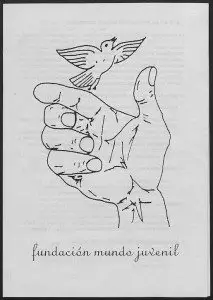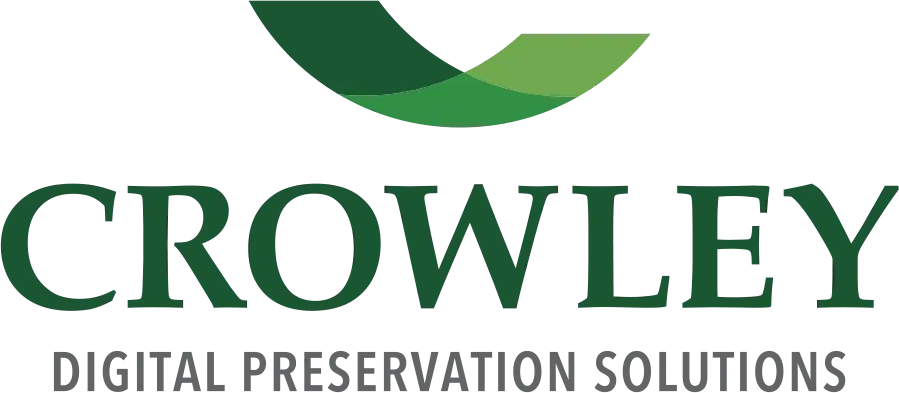Princeton’s Latin American Ephemera

Having celebrated Cinco de Mayo on Monday, we decided to raise our margaritas and toast Princeton’s Latin American Ephemera Collection. Crowley Imaging is currently under contract to scan and convert more than 100, 000 images from the collections, which are unparalleled in size and scope. As a result of this project, a vast portion that has so far remained uncatalogued, and therefore hidden from students and scholars, will soon become freely and widely available on the web.
Short-lived…Forever
The concept of preserving ephemera is irony in a concrete form. The dictionary definition of “ephemera” reads:
- things that exist or are used or enjoyed for only a short time
- items of collectible memorabilia, typically written or printed ones, that were originally expected to have only short-term usefulness or popularity
For researchers and students of history, it’s often the opportunity to view the short-lived ephemera that offers the truest sense of a time or place in history and the shaping of a culture. In housing and converting the Latin American Collection, Princeton’s Firestone Library is preserving these moments in time for all generations. As materials are converted to digital images, the files will eventually become available online, greatly enhancing audience metrics, accessibility and volume.
The Collection

As described by Fernando Acosta-Rodriguez, Librarian for Latin American, Iberian and Latino Studies at Princeton University Library, “Princeton’s Latin American Ephemera Collection includes thousands of pamphlets, brochures, flyers, placards and other printed items created during recent decades by a wide variety of social activists,non-governmental organizations, government agencies, political parties, public policy think tanks, and other types of organizations across Latin America, in order to publicize their views, positions, agendas, policies, events, and activities. The topics best represented are human rights, elections, gender issues, indigenous peoples, youth issues, labor, ecology and environmental issues, development, public health, education and religion — all essential the to study of contemporary Latin America.”
The Document Conversion Process
In April, Crowley Imaging embarked on a three-year scanning project with Princeton University. Each month, approximately 400 folders of materials are scanned on a Zeutschel 12002 planetary scanner. With its cool LED lighting, Perfect Book technology for curve correction, overhead camera and flexible book cradle, the Zeutschel offers best-in-class image quality while minimizing or eliminating stress to the original bound and loose documents.
For Crowley Imaging technician, Eric Watters, one of the unique aspects of the project is the ability to scan the file barcodes directly into the software. “Being able to scan a barcode cuts the scan time significantly – by as much as four times,” says Watters. “Instead of having to manually create an electronic folder for each file [over 14,000 at completion] or scan the actual folder, I just have to scan the folder barcode and the software automatically creates corresponding electronic files.”
The files are a mix of pamphlets, posters and other documents. “Last month, the topic was primarily public health information,” notes Watters, who can translate just enough Spanish to get the gist of what he’s scanning. “This month is politics and communism. It’s always interesting to open the box for the first time each month.”
A Q13 card (a calibration target) is used at the start of each shift to determine appropriate image density. The images are delivered as 400 dpi color TIFF images with OCR/XML output and as JHOVE files (validation software that ensures images are saved correctly with all pertinent information).
This digitization effort is the initial step in a larger process that also involves the development of a simplified item-by-item cataloging system and workflow, along with a quick means of exposing the digitized collection on the web. “The infrastructure of this system is currently being developed thanks to a grant that we obtained in 2013 from the Council on Library and Information Resources’ Cataloging Hidden Special Collections and Archives Program,” says Acosta-Rodriguez. “In the end, the digitally reformatted ephemera will be freely and globally available through a discovery interface that will include faceted searching and browsing.”
A Longtime Partnership
Meghan Wyatt, Crowley’s senior imaging consultant, has worked with various Princeton libraries and departments over the past six years. “We’ve scanned collections for the Seeley G. Mudd Manuscript Library, the Princeton University Art Museum, the Economics Department and others. Each collection is of significant historical and academic importance and I’ve found the Princeton librarians and archivists to be very knowledgeable. Their dedication to making these collections accessible electronically speaks to their passion of preservation and education as individuals and as a community.”
Questions about digitizing for preservation or wider access?
If you have any questions about preserving historic records through digitization, please contact The Crowley Company by calling (240) 215-0224. General inquiries can be emailed to [email protected]. You can also follow The Crowley Company on Facebook, Twitter, Google+, LinkedIn, Pinterest, and YouTube.

